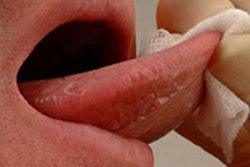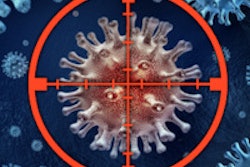Sulforaphane, an extract found in broccoli sprouts and cabbage, helped protect mice against oral cancer in a new study. Researchers are now studying if it prevents head and neck cancer (HNC) in humans.
Researchers at the University of Pittsburgh Cancer Institute (UPCI) and University of Pittsburgh Medical Center (UPMC) CancerCenter gave sulforaphane to mice predisposed to oral cancer. They found that it significantly reduced the incidence and number of tumors. They presented their findings at the American Association for Cancer Research (AACR) annual meeting in Philadelphia.
"The clear benefit of sulforaphane in preventing oral cancer in mice raises hope that this well-tolerated compound also may act to prevent oral cancer in humans who face chronic exposure to environmental pollutants and carcinogens," stated Daniel E. Johnson, PhD, senior scientist in the UPCI Head and Neck Cancer Program, in a press release.
The researchers have already tested a fruit juice mixed with sulforaphane-rich broccoli sprout extract on 10 healthy volunteers, who had no ill effects from the extract. The next step is to conduct a clinical trial to see if the extract can help prevent HNC.
"People who are cured of head and neck cancer are still at very high risk for a second cancer in their mouth or throat, and, unfortunately, these second cancers are commonly fatal," stated lead author Julie Bauman, MD, MPH, co-director of the UPMC Head and Neck Cancer Center of Excellence. "So we're developing a safe, natural molecule found in cruciferous vegetables to protect the oral lining where these cancers form."
Later this year, Dr. Bauman and colleagues will recruit 40 volunteers who are at a higher risk for HNC reoccurrence. The participants will regularly take capsules containing broccoli seed powder to determine if they can tolerate the regimen and whether it has enough of an impact on their oral lining to prevent cancer.



















